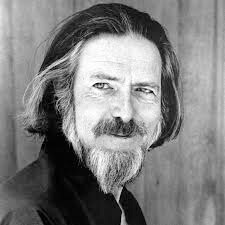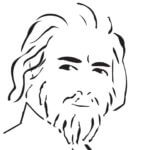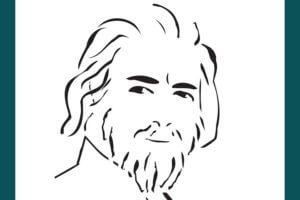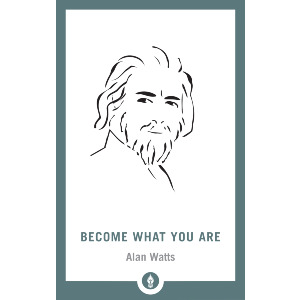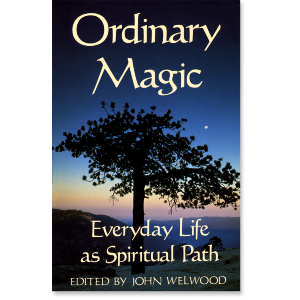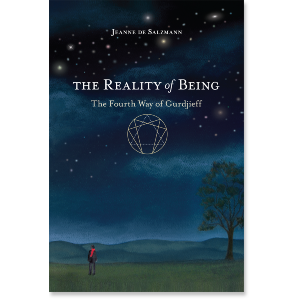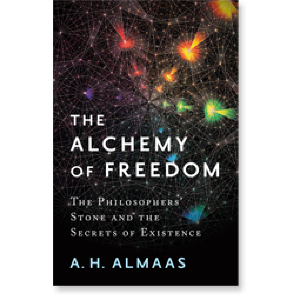People often say that they are looking for Reality and that they are trying to live. I wonder what that means?
Some time ago a group of people were sitting in a restaurant, and one of them asked the others to say what they meant by Reality. There was much vague discussion, much talk of metaphysics and psychology, but one of those present, when asked his opinion, simply shrugged his shoulders and pointed at the saltshaker. He was amazed to find that no one understood him, yet he had intended to be neither clever nor obscure. His idea was just to give a commonsense answer to the question, on the ordinary assumption that Reality is whatever exists. He was not understood because his friends, in common with many others, regarded Reality as a special kind of existence and Life (with a capital L) as a particular way of living. Thus we often meet those who talk about the difference between being a mere clod, a mere “animated stomach,” and a real person; between those who simply exist and those who really live.
In Chinese philosophy Life is called Tao, and the Chinese speak of the wise man as one who realizes (makes real to himself) his accord and harmony with Tao. Therefore, it is asked whether Tao means Life in the sense of simple existence, or whether Tao is Life lived in a special way, lived faithfully, thoroughly, vitally, and with a certain zest born of the joy of being alive.
In Chinese philosophy Life is called Tao, and the Chinese speak of the wise man as one who realizes (makes real to himself) his accord and harmony with Tao.
The answer to this question depends solely on why it is asked. Let’s see what the Chinese themselves say about it.
A pupil asked his teacher, “What is the Tao?” He answered, “Everyday life is the Tao.”
“How,” went on the pupil, “does one get into accord with it?”
“If you try to accord with it,” said the teacher, “you will get away from it.”
Indeed, we have all met those who are trying very hard to be real persons, to give their lives Reality (or meaning) and to live as distinct from existing. These seekers are of many kinds, highbrow and lowbrow, ranging from students of arcane wisdom to the audiences of popular speakers on pep and personality, selling yourself and making your life a success. I have never yet met anyone who tried to become a real person with success. The result of such attempts is invariably loss of personality, for there is an ancient paradox of the spiritual life whereby those who try to make themselves great become small. The paradox is even a bit more complicated than this; it also means that if you try, indirectly, to make yourself great by making yourself small, you succeed only in remaining small. It is all a question of motive, of what you want. Motives may be subtly concealed, and we may not call the desire to be a real person the desire to be great; but that is just a matter of words.
I have never yet met anyone who tried to become a real person with success. The result of such attempts is invariably loss of personality, for there is an ancient paradox of the spiritual life whereby those who try to make themselves great become small.
So many modern religions and psychologies make this fundamental mistake of trying to make the tail wag the dog, which is what the quest for personality amounts to. Old-fashioned Christianity was never so stupid, for its aim was never to achieve greatness (or great personality) for man. Its aim was simply to serve God and ascribe all greatness to Him. But in these days so many people find themselves unable to believe in the Christian God, and His more abstract substitutes fail to inspire any genuine devotion and reverence.
So we return to the original question, “What, then, is Life; what is Reality, that it may inspire us with devotion?” If we regard it as a particular way of living or as a particular kind of existence and accord our devotion to that, what are we doing? We are revering its expression in great personality, in the behavior of those whom we consider “real persons.” But here is the snag. When we revere real personality in others, we are liable to become mere imitators; when we revere it as an ideal for ourselves, here is the old trouble of wanting to make yourself great. It is all a question of pride, for if you revere Life and Reality only in particular types of personal living, you deny Life and Reality to such humble things as, for instance, saltshakers, specks of dust, worms, flowers, and the great unregenerate masses of the human race. We are reminded of the Pharisee’s prayer, thanking God that He had not made him sinful like other men. But a Life, a Reality, a Tao that can be at once a Christ, a Buddha, a Lao-tzu, and an ignorant fool or a worm, this is something really mysterious and wonderful and really worth devotion if you consider it for a while.
The Buddhist scriptures say: “When every phase of our mind is in accord with the Buddha-mind, there shall not be one atom of dust that does not enter into Buddha-hood.” For Life and Reality are not things you can have for yourself unless you accord them to all others. They do not belong to particular persons any more than the sun, moon, and stars.
For Life and Reality are not things you can have for yourself unless you accord them to all others. They do not belong to particular persons any more than the sun, moon, and stars.
This has been excerpted from Become What You Are.
Related Books
$12.95 - Paperback
$29.95 - Paperback
$27.95 - Paperback
$18.95 - Paperback
